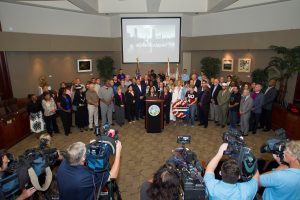Public relations helps produce desired outcomes. From creating multifaceted campaigns utilizing a variety of communication outreach tools, social media and publicity in an effort to maximize visibility and brand awareness to managing issues and crises in order to minimize the negative impact and protect an organization’s reputation, it’s all about the results.
With expertise in all aspects of public relations, media relations, community relations, advertising, branding and integrated marketing communications, Ann Marie Varga Public Relations offers Strategic Communication Plans, Reputation & Crisis Management, Content Development, Digital Marketing, Communication Audits & Assessments and Media Training. Other services include Branding Audits & Assessments, Strategic Community Engagement Plans and Special Event Production.
Strategic Communication Plans
Effective communication doesn’t just happen. It requires careful planning, collaboration and creativity. A strategic communication plan must provide a situation analysis, set goals and objectives, identify audience segments, outline the variety of tools to reach those constituents, fine-tune the key messages, timeline and budget as well as metrics to measure the plan’s effectiveness.
Content Development
Targeted communication outreach is necessary due to the shrinking of traditional media. Organizations must tell their own stories through a variety of tools to reach target audience segments, including business and community influencers and the news media. Speaking with “one clear voice” internally and externally is critical. Looking for opportunities to share—and control—the organization’s message is paramount and repurposing stories facilitates “working smarter not harder” which also safeguards the organization’s budget. Writing and editorial services for internal and external communications and print and online publications range from annual reports to white papers to news releases and e-newsletters to marketing communications and everything in between.
Reputation & Crisis Management
Monitoring and managing issues is a critical facet of reputation and crisis management. Putting the necessary tools in place—brief sheets, fact sheets, media inquiry forms, tracking logs—can help organizations minimize the crises. But if a crisis strikes, it’s imperative to have a comprehensive communications plan on the shelf that outlines roles and responsibilities and contains procedures and policies to disseminate and respond to requests for pre-disaster, disaster, and post-disaster information for both internal and external audiences. This plan should be practiced by the organization annually and it must be scalable so that the entire plan, or portions of the plan, may be implemented as needed based on the situation.

the Pulse Nightclub tragedy in June 2016.
Digital Marketing

The shrinking of traditional media and the growth of new media necessitates creativity, flexibility and timeliness. Today’s 24/7 news cycle has created the need for maintaining engaging and up-to-date online news and information. From online newsrooms with update notifications to e-newsletters to the use of Facebook, Twitter, LinkedIn, YouTube and Instagram, the communication landscape continues to expand. These digital communication tools are invaluable in today’s world of “citizen journalism”—a world where most people get their news online and there’s no longer a monologue, but a dialogue.
Communication Audits & Assessments
Auditing and assessing communication tools and functions can improve productivity, efficiency, and knowledge management, which is critical for business continuity. Enhancing the internal workings of the communication function can also boost media coverage (frequency, content, tone and accuracy), improve issues management (advance awareness, planning and internal notification) and ensure information sharing (for consistency in messaging).
Media Training
The news media have the power to select information. The media set the agenda for public discussion. Getting on the media agenda—and controlling the messages once you get there—is key. In good times and in bad, being prepared for interviews is critical and leading with the key messages can help minimize negative coverage and maximize opportunities to advance your organization’s agenda. Message development and training enables organizations to speak with “one clear voice” internally and externally.